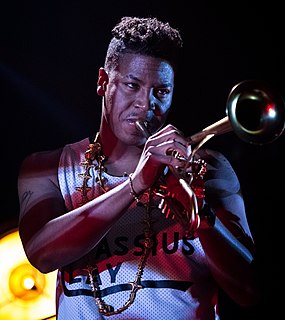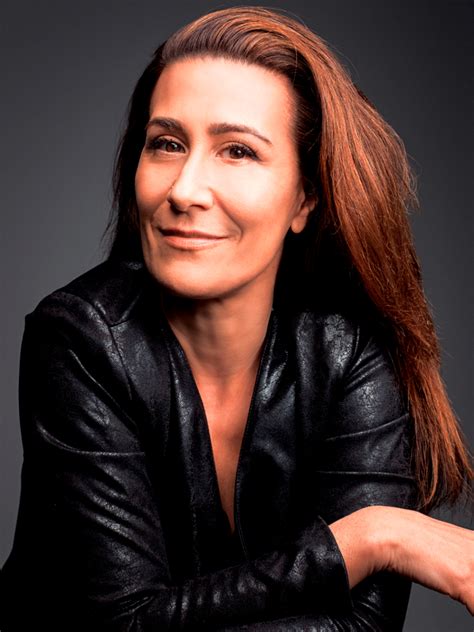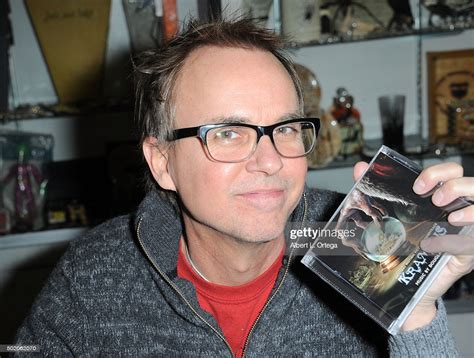A Quote by Alfred Hitchcock
I don't understand why we have to experiment with film. I think everything should be done on paper. A musician has to do it, a composer. He puts a lot of dots down and beautiful music comes out. And I think that students should be taught to visualize. That's the one thing missing in all this. The one thing that the student has got to do is to learn that there is a rectangle up there - a white rectangle in a theater - and it has to be filled.
Related Quotes
One night I had an idea while I was at the movies: to photograph the film itself. I tried to imagine photographing an entire feature film with my camera. I could already picture the projection screen making itself visible as a white rectangle. In my imagination, this would appear as a glowing, white rectangle; it would come forward from the projection surface and illuminate the entire theater. This idea struck me as being very interesting, mysterious, and even religious.
What we're doing now, is to try to eradicate the limited notion of how people are interacting with each other through hyper-racialized ideas. A lot of it deal with, as an example, genre. If I ask you to visualize a trap musician or a hip-hop musician, you'll see one thing. If I say visualize a western classical musician, you'll see a very different thing. A lot of how music is disseminated to us is hyper-racialized. It's not something that we think about all the time, but if you take a minute to look back, it's why you get this argument when there's a white rapper.
I think a lot of people get intimidated by the language of music, but everyone owns music. I think there's nothing standing in between a composer and her audience. I think a lot of people feel that way because they feel it's rarefied, but it's really not. You should feel the impact of it without being able to name it because it's ultimately a primal thing.
I was playing in a band and was approached to score an independent film. I had never done it, but had written instrumental music, so I figured I could do it. Turns out I loved scoring the film, and took on another couple films before realizing that if I was to be an effective narrative composer, I should study the craft of composition. I stopped taking projects and got a degree in orchestral music composition, and followed that with film scoring studies. Near the end of my degree studies, I started taking on student films as a way to get back into film scoring.
If you think about the energy that a rocket engine has to put out and all the fuel and you're sitting on top of like a bomb. And on the Space Shuttle, that big orange tank is filled with liquid hydrogen and liquid oxygen, the white cell rocket boosters on the sides are filled with solid propellant. There's a lot of energy in all those chemicals there and you've got to control it in a way so it doesn't explode. So, there's a lot of plumbing, a lot of valving, a lot of control systems, and it's a very complicated thing. So, how do you bring the price of that down?
Because I was a chemistry student and was never supposed to be a musician, I always felt like I was an outsider looking at music going "Why is this interesting to me? Why should I be doing this?" and I never felt like I was a natural musician. It came into my life, kind of, as a conceptual problem and I think all my pieces are, in a way, looking at some issue and sometimes veering toward an inside baseball model of classical music.
...I think there's only one [thing] that anybody teaches, and this is character. And I think that whether you are teaching history, math, or biology, or music, what you are really doing is, you are helping to shape the character of that person who is your student... Music is such a wonderful teaching tool, because while you are developing musical skills, that student can learn a lot about discipline [and] cooperation.
There will always be times where you think, 'What went wrong? Why wasn't that one more popular?' You can't always figure that out, especially if you think you've done the best job you can do and was interesting to you. I mean, 'My Soul to Take,' I thought should have done much better, and I still like that film a lot.
I don't understand why people make me want to make music that's a join-the-dots thing by numbers. I find it really difficult when people say, 'Aw, you should have made a really big hip hop record, that would have been really good for you' or, 'You should have made a song like Lily Allen, that would have been so great.'






































